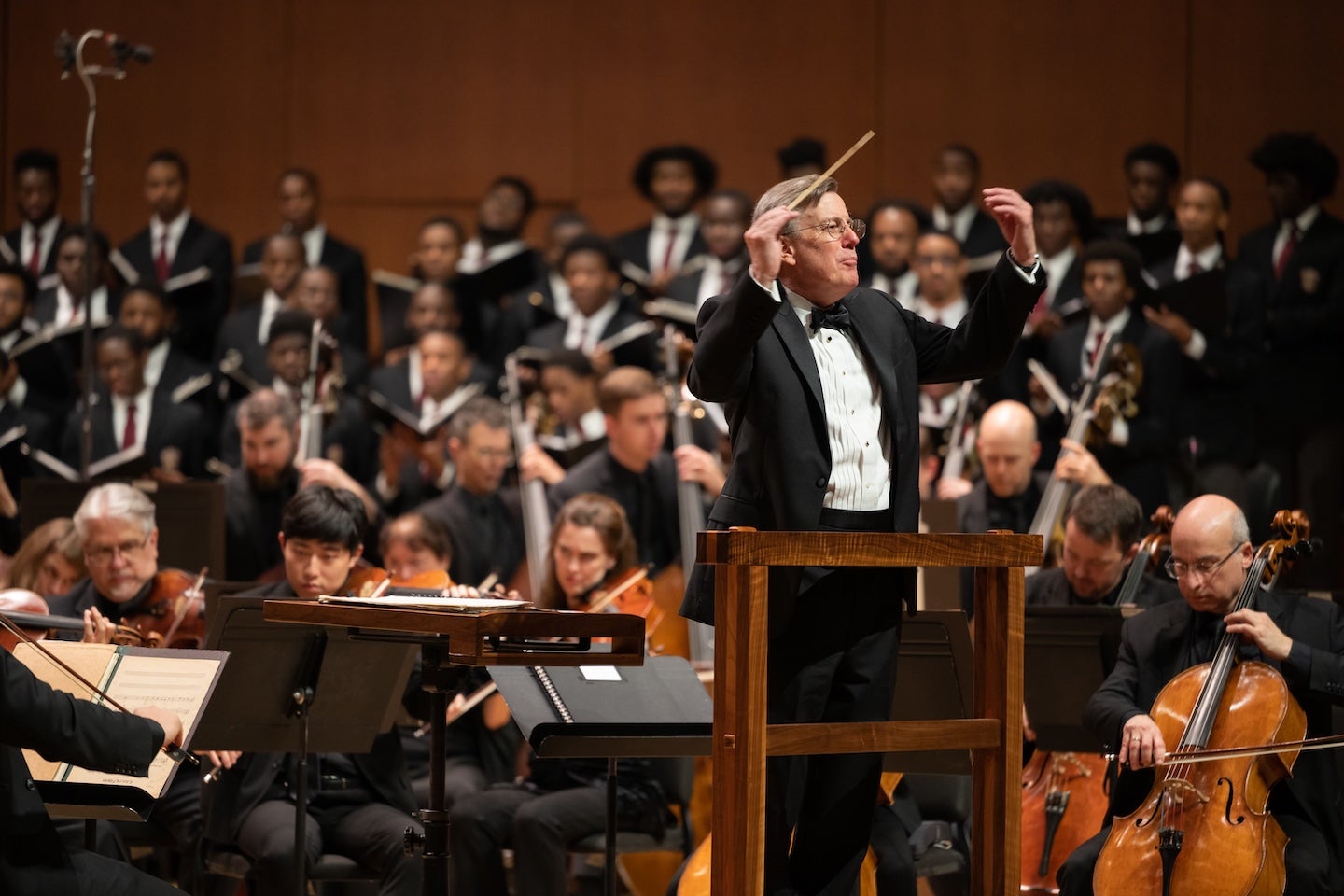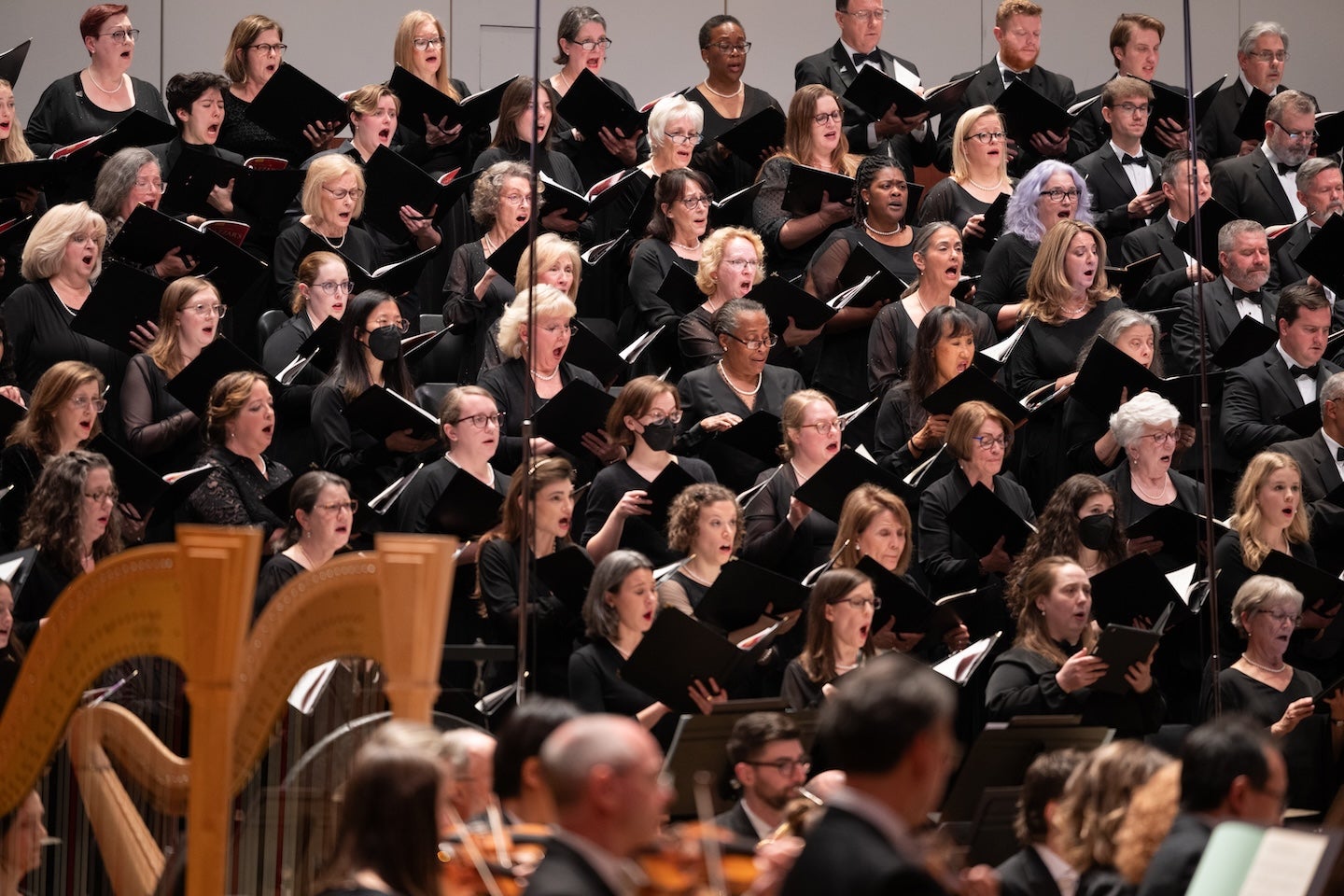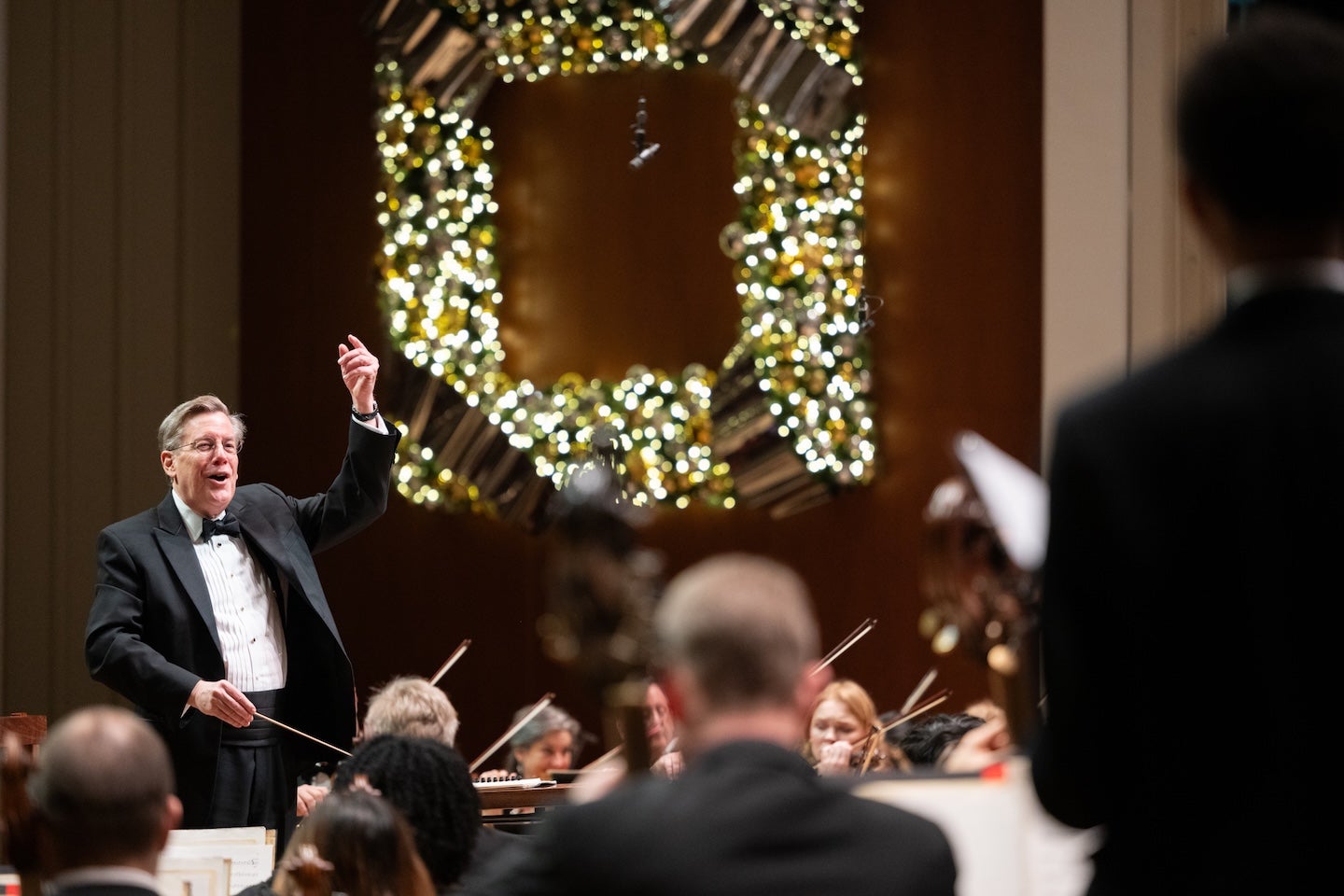"Connected to the Eternal": Director of Choruses Norman Mackenzie Reflects on his 25th Anniversary and Vision for Next Season
May 9, 2025
By: Mark T. Ketterson

Choral music mavens have a lot to celebrate this coming year. A quick glance at Atlanta Symphony Orchestra’s 2025-2026 season announcement reveals that within a delightfully well-balanced cornucopia of musical offerings, audiences will be treated to a delectable sampling of choral masterpieces that span the late Baroque to the height of the Romantic era, including works by Bach, Beethoven, Schubert, and Mahler.
The season brings cause for celebration of another sort as it marks the 25th anniversary of the Grammy Award winning director of the ASO’s Chorus and Chamber Chorus, Norman Mackenzie. Mackenzie’s appointment followed 14 years of association with the chorus under the legendary Robert Shaw, “the choral genius of the 20th century”, as he reminds us with obvious reverence. Mackenzie is also Director of Music at Trinity Presbyterian Church. “I don’t get very much sleep,” he jokes. “But fortunately, I don’t need a lot of sleep.”

Mackenzie hails from Philadelphia. His mother was a singer and voice teacher, his grandmother a piano teacher, and his engineer father boasted a beautiful, natural tenor voice. “The greatest gift to a musician,” Mackenzie says, “is parents who understand talent.” Mackenzie’s parents thankfully did, and their support quickly paid off. He made his debut as a pianist with the Philadelphia Orchestra at the tender age of twelve, and as organist at twenty. After earning his master’s degree at Westminster Choir College he came to Atlanta, initially for a church appointment, but was soon assisting Shaw at the Atlanta Symphony Orchestra Chorus as principal accompanist. “You can’t pay for an education like that,” he observes.
Although Mackenzie emerged as Shaw’s heir apparent, he is quick to demure at any suggestion that he has replaced his mentor. “I have tried to be humble,” he explains. “If I’ve been successful at all it is because I knew no one could step into those shoes.” What he did see as his mandate was to foster a necessary evolution for the chorus from an ensemble who had basically sung for one conductor into a flexible instrument that could respond to other ideas, all while preserving the basic sound of a Robert Shaw chorus.
Beethoven’s Ninth Symphony, which will conclude ASO Music Director Nathalie Stutzmann’s Beethoven Project in November, provides an opportunity to explore Mackenzie’s approach. “The Ninth is a screamer,” he describes. “If there isn’t blood on the stage, the chorus has done something wrong. One of the great challenges of the Beethoven is that the chorus sits for 45 minutes before opening their mouths, which is death to vocal cords, then the first thing they sing is this booming ‘Freude!’. You do not want to prepare by attacking with dynamics, pitches, and rhythms all in place. What you do is reduce the information the composer has given you to its building blocks.”
Mackenzie utilizes Shaw’s emblematic method of “count singing” in which language is replaced with the number of the beat on which it occurs. “You don’t sing ‘Seid umschlungen Millionen,’ you sing ‘one and two, and one and two and’, quietly and poco staccato,” he explains. “It drives everybody nuts; but soon you get this incredible precision and metrical integrity.” He will then take specific pitches away, and have his singers intone passages on a four-part chord monotone. “Then, and only then, you increase the dynamics, add color, and put the language back in with pitch. What is revealed is what Beethoven wrote without undue strain on your singers.”
When it comes to Bach’s Mass in B minor, which will be heard in March of 2026, Mackenzie cautions “Bach does not dance with so heavy a foot as Beethoven. The entire aesthetic of the period is different. Big crescendi and diminuendi are not so important. What is important is texture and clarity in this contrapuntal writing. Every line is a melody, and important, but you must decide what is the principal material and ensure that the other things do not obscure it. With Bach it’s all about clarity, being bright, light, and effortless, so that even a first-time listener can identify the miracle of what is going on in Bach’s head.”

The sweeping Romanticism of the Schubert Mass No. 2 in G major, which will be heard next January, and the Mahler Symphony No. 2 (the glorious “Resurrection” symphony) which will close the 2025/2026 season the following June brings more challenges still. “I think the Mahler will be a great piece for Nathalie. After our years with Donald Runnicles and Robert Spano we got Nathalie, who began as a singer. When she stands before a chorus she has a different approach, a very vocal one, which is lovely. She gets remarkable performances from that.
“Mahler comes from somewhere deep in the bowels of the earth. It’s like the Beethoven in that you wait for that choral movement, but after all that time the first low G-flat major chord is the softest chord written for chorus in Romantic music. That’s not easy. Then they must sing every other dynamic in that short movement until the final section, which is the loudest piece written for chorus. It all must be gorgeous, dark in color, and expressive.
“This chorus probably has more history with these pieces than most American choruses,” Mackenzie notes, “so it’s a particularly interesting season to me.”
Mackenzie has enjoyed innumerable satisfying moments. He particularly remembers a Carnegie Hall concert in which he stepped in for an indisposed Robert Shaw on what was intended as Shaw’s 80th birthday celebration. “The singers were pulling for me every second. It got a great reception,” he recalls with pardonable pride. Then, there was a rehearsal with the Berlin Philharmonic, when that venerated assemblage was so impressed by Atlanta’s chorus they sat in stunned silence after the singers delivered their final chord, then tapped their bows in approval.
But his greatest musical joys happen here at home. “Under an inspired conductor like Shaw – or hopefully sometimes even me,” Mackenzie reflects, “you get something from this chorus that is connected to the eternal. It’s a human connection but also a divine one, as all great music is, and should be.